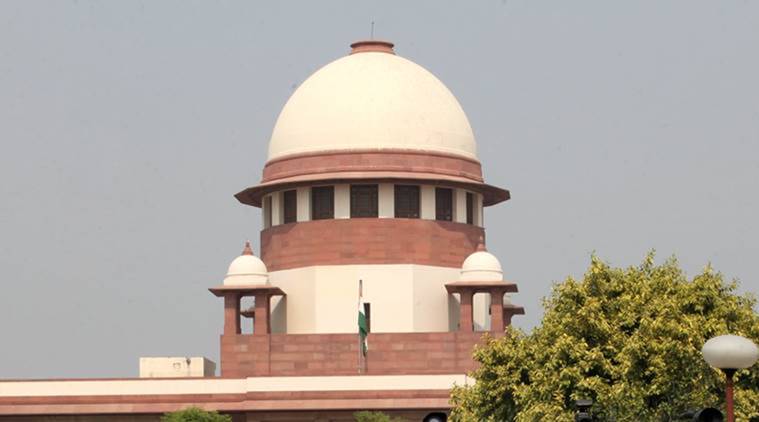. It can’t be an enforceable civil right
NowBall in the Supreme Court

The protagonists of triple divorce have been claiming that it is an integral part of Muslim law, but they have now to demonstrate that it is “fundamental” to the Islamic religion.The Supreme Court began hearing the so-called triple divorce case last week with some meaningful observations. The Court’s strategy in handling this socially sensitive matter has, from the beginning, been highly appreciable. As against the general practice, the matter was first placed before a bench of three judges. But as in the course of time, when it was assertively linked by the stakeholders to different fundamental rights of the people enshrined in the Constitution — on the petitioners’ side to the right to gender equality and by the respondents and their supporters to the right to religious freedom — the Court took a well-considered decision to let the matter be decided by a Constitution bench.
Avoiding the hurly-burly of its routine during working days, which often results in adjournments and delays, the Court decided to hold expeditious hearing of the matter during the vacations. The decision may have been taken, in all probability, with a view to quickly close the chapter, which has unfortunately become a plaything with the trio of small-minded bigots, angry feminists and unprincipled politicians. The formation of the bench at the eleventh hour and its composition cannot be brushed aside as insignificant. As the unruly media debaters on the issue have given it the colour of a majority-minority tussle, putting four minority-community judges on the five-judge bench cannot be seen as merely coincidental.
The judicial wisdom of delinking polygamy from triple divorce and excluding it from the Court’s present deliberations cannot but be deeply appreciated. It dispels the impression in the minds of the concerned community’s religious leaders that all of its major principles which it considers crucial — albeit erroneously — will be gradually tested on the touchstone of constitutional validity so as to eventually oust the whole of its personal law from the country’s legal arena.
The three main questions the bench has formulated at the outset — is triple divorce fundamental to Islam, is it sacramental, and can it be seen as an enforceable civil right — have virtually defined dimensions for arguments from either side during the hearing of the case. The protagonists of triple divorce have been claiming that it is an integral part of Muslim law, but they have now to demonstrate that it is “fundamental” to the Islamic religion. Going by the true and authentic Islamic teachings, divorce itself is abghaz-ul-mubahat indallah (most detestable in the sight of God) among legally permissible things.
Who has then the cheek to claim that divorce — leave alone the so-called triple divorce — is “fundamental” to Islam? True that, unlike in classical Hindu and Christian laws, in Islamic legal philosophy marriage is not an absolutely indissoluble union and its termination is permissible in irreparably broken marriages, but to turn it into one of the fundamentals of Islam militates against its noble teachings. As regards divorce being “sacramental” in Islam, as is well known even marriage in Muslim law is not sacramental — how, then, can divorce be sen to be so? And, finally, is triple divorce really an “enforceable civil right”? Getting a marriage hit by heavy odds eventually dissolved is surely Muslim husbands’ enforceable right under their personal law, but when more humane ways of achieving this object are made available by Islamic law itself, how can doing it by employing the notorious triple-divorce formula alone be accepted by the modern courts as an unquestionable right deserving enforcement by them? With due apologies to the vehement supporters of triple divorce, the answers to each of the three preliminary issues set by the court have to be emphatically in the negative.
In an old high court judgment, the late Justice V.R. Krishna Iyer, when confronted with the essential beliefs of Islam, had observed, “each religion has its own tenets, doctrines and formularies making up its personality as it were; what then are the fundamentals of Islam, the unquestioning embrace of which makes a man Muslim?” (Shihabuddin Koya, Kerala 1971). The learned judge stopped short at saying, “belief in the oneness of God is indubitably the first”. But can the Muslim religious leaders of today complete the list and count triple divorce among such fundamentals? In another high court case, a learned non-Muslim judge had observed that the Holy Quran has a pivotal place in Islamic beliefs and practices, without which Islam cannot exist (Chandanmal Chopra, Calcutta, 1986). Can we by any dint of imagination put triple divorce on the same footing?
The Supreme Court has reportedly also wondered if all forms of divorce under Muslim law are abolished where will Muslim men go for obtaining a divorce. The Court may easily decide that triple divorce in every case will count only as a single revocable divorce, leaving room for its revocation by the husband within about three months and for direct remarriage between the parties by their mutual consent for all times to come. Being in conformity with the divorce law reform in Muslim countries, this will eminently serve the purposes of the present cases. The issue of effecting gender equality among the Muslims in the matter of divorce will, of course, have to be considered by the judiciary at an appropriate time, but in the political climate of the day the time does not seem to be ripe for such a revolutionary exercise.http://indianexpress.com/article/opinion/columns/ball-in-the-supreme-court-triple-talaq-4655854/
May 16, 2017 at 10:09 pm
The matter of triple talaq is a part of the problem. The real problem is safety and security of women in marriage and divorce